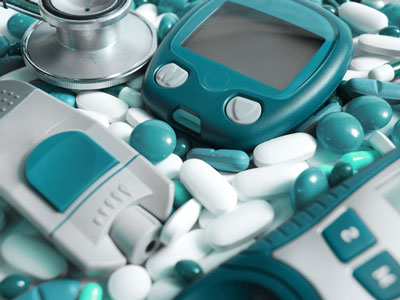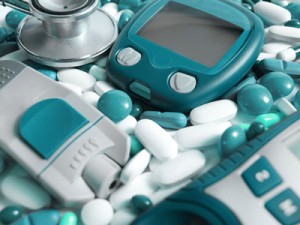Synjardy granted marketing authorisation in the EU for the treatment of adults with type 2 diabetes
Posted: 28 May 2015 |
Synjardy has been granted marketing authorisation by the European Commission for the treatment of adults with type 2 diabetes (T2D) in the European Union…


Synjardy® has been granted marketing authorisation by the European Commission for the treatment of adults with type 2 diabetes (T2D) in the European Union (EU).


Synjardy is a new single-pill combination therapy from the Boehringer Ingelheim and Eli Lilly and Company diabetes alliance.
Synjardy combines empagliflozin, a sodium glucose cotransporter 2 (SGLT2) inhibitor, and metformin hydrochloride (HCl), commonly prescribed for the treatment of T2D. Empagliflozin was approved in the EU in May 2014 and is available in many countries as an oral, once-daily tablet, marketed as Jardiance®.
Synjardy is indicated for use alongside diet and exercise to improve blood glucose control in adults with T2D when they are:
- Inadequately controlled on their maximally tolerated dose of metformin alone
- Inadequately controlled with metformin in combination with other glucose-lowering medicinal products, including insulin
- Already being treated with the combination of empagliflozin and metformin as separate tablets
Synjardy may help adults with T2D achieve their blood glucose targets
“A single medicine is often not sufficient for patients to maintain blood glucose control in the long term, resulting in the need for combinations of blood glucose-lowering drugs,” said Professor Klaus Dugi, Chief Medical Officer, Boehringer Ingelheim. “We are delighted to offer this single-pill combination of two agents with different mechanisms. Synjardy may help adults with T2D achieve their blood glucose targets with the added benefit of a convenient treatment regimen.”
The marketing authorisation is based on the submission of robust clinical data from seven Phase III clinical trials evaluating the safety and efficacy of empagliflozin as add-on to metformin either alone or in combination with other blood glucose-lowering drugs (pioglitazone, sulphonylurea, DPP-4 inhibitors and insulin). More than 7,000 patients with T2D participated, of which over 4,700 were treated with empagliflozin as add-on to metformin.
The results showed that treatment with empagliflozin (10mg and 25mg) when added to metformin led to clinically relevant reductions in blood glucose, body weight and blood pressure compared to placebo as add-on to metformin.




